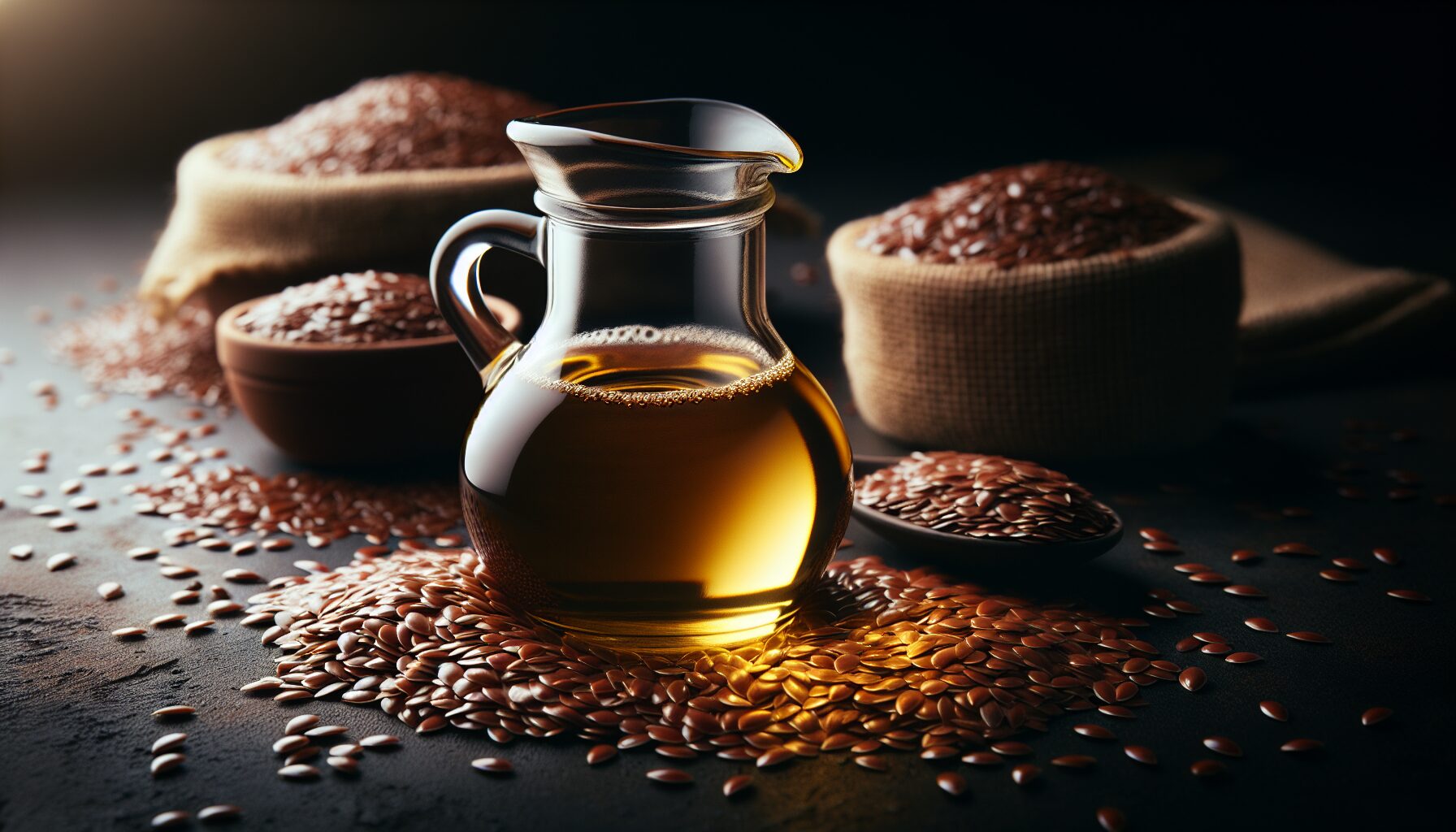
Flax Seeds Benefits For Skin Health
Flax seeds or linseed may have benefits for skin health when regularly eaten in our diet. This food is rich in natural and healthy oils that can contribute to the wellbeing of the skin. Flax seeds are also sometimes called alsi seeds.
Flax seeds accumulate oils in their seeds as part of their growing or developmental process. This is one of the main reasons for consuming this food as part of your diet. Flax seeds are easy to integrate into various dishes and may actually improve the visual appearance of some of your dishes too. A healthy addition of flax seeds may also add depth in texture to a meal.
A rich fraction of healthy fatty acids can contribute to the nutritional needs of the skin which is hungry for healthy fats and hormone production too. Recent research reveals how important flax seeds could be for our health and dietary polyunsaturated fatty acids may modulate skin properties.
Nutritional deficiencies in fatty acids can lead to skin conditions such as eczema. Maintaining healthy skin is very important in the production of our internal body systems from external damage.
Here the possible benefits of flax seeds for skin health will be considered to identify whether this is a food you would consider adding to your diet.

How Flax Seeds Or Linseed Benefit Skin Health
Our body is contains layers of membranes which are rich in fatty acids and proteins. The skin is an external representation of these inner cell membranes and surrounds the outer body in layers. Our skin is considered to be one of the largest organs in the body.
Our skin forms a protective barrier to external stresses that would otherwise cause damage to important parts of the body and limit survival. This includes rays from the sun and damage from environmental toxins or also pathogenic bacteria.
The health of the skin is overlooked but is important for overall wellness and also for maintaining a youthful appearance into old age. The composition of the skin is approximately 60% fatty acids. This emphasizes how important fatty acids are for skin health. The high fatty acid content of the skin is mostly due to phospholipid bilayers. Phospholipids are a mix of lipids or fat and phosphorus as phosphate.
Such a rich percentage of fatty acids is why maintaining a healthy dietary intake of healthy fats is so important. Fats are also a limiting factor in the production of some hormones such as steroid hormones and a healthy dietary balance of fat is very important for our wellness. Deficiencies in fat intake can lead to eczema like skin conditions or skin scaling.
As a source of healthy fatty acids or fats flax seeds offer possible health benefits for the overall health and wellbeing of our skin.
Flax Seed Fatty Acids And Skin Health
Flax seeds are rich in specific fatty acids which can be integrated into cell membranes once they have been digested. The oil fraction of flax seeds contains alpha linolenic acid and linoleic acid. These are considered to be healthy fatty acids because they are polyunsaturated. Flax seeds are one of the richest sources of alpha linolenic acid and polyunsaturated omega 3 fatty acids available.
About 50% of the total flax seed oil fraction is alpha linolenic acid and this fatty acid makes up about 22% of the whole flax seed content. Linoleic acid has been shown to be a main fraction of skin fatty acids along with oleic acid in living skin layers.

How Alpha Linolenic Acid And Linoleic Acid Benefit Skin Health
Alpha linolenic acid is an essential fatty acid and must be acquired in our diet via foods like flax seeds. Alpha linolenic acid is a precursor of the polyunsaturated omega 3 fatty acids EPA and DHA. Linoleic acid is also an essential fatty acid and converts to other polyunsaturated fatty acids in the body as they are needed.
Research shows that dietary fatty acids could influence skin function and characteristics of the skin. Especially polyunsaturated fatty acids such as those found in flax seeds. EPA and DHA have been shown to have some effect in improving symptoms of dermatitis and acne. These fatty acids seem to have inflammation reducing effects.
Deficiencies in linoleic acid are linked to skin lesions and diets rich in alpha linolenic acid are linked with improvements in skin traits associated with skin wellness. Clinical deficiencies in alpha linolenic acid cause scaly dermatitis and skin atrophy. Alpha linolenic acid may have overall inflammation suppressing effects on the skin via reducing levels of systemic inflammatory cytokines.
Research has also found that linoleic acid may be heavily implicated in skin diseases such as acne or atopic dermatitis. Linoleic acid may have inflammation reducing effects and could assist wound healing. Linoleic acid is also used in cosmetic skin products for skin moisturizing and barrier repair properties. Initial research shows that linoleic acid could have photoprotective effects. Linoleic acid and alpha linolenic acid may have anti wrinkle properties through skin collagen production or skin hydration.
Alpha Linolenic Acid And Gut Microbes
Some fatty acids such as alpha linolenic acid are able to modulate gut microbial growth and this could also have benefits for skin health. Some pathogenic microbes are able to change the skin environment and cause skin diseases such as acne or eczema.
Our more health supportive gut or skin microbes are able to support skin health via exchanging nutrients and preventing harmful pathogens from thriving. This could be another more indirect means as to how healthy fatty acids like alpha linolenic acid support skin wellness.
Flax seeds are also a source of prebiotic dietary fibre which can improve gut microbe health. About 28% of flaxseeds by weight is dietary fibre.
Flax Seed Antioxidants And Skin Health
Flax seeds are also a source of antioxidant tocopherols, beta carotene, polyphenols and plant sterols. Fat soluble antioxidants such as those found in flax seeds are important for stabilising fatty acids and may prevent oil rancidity.
They could assist with supporting skin health via reductions in oxidative stress and inflammation within the skin. Via reductions in oxidative stress or damage flax seed antioxidants could prevent skin damage.
Antioxidants are also important for preventing cancers such as skin cancer from oxidative damage or radiation. Some fatty acids which are found in flax seed oil have also been shown to have possible effects against cancer in preclinical tests.

Researched Benefits Of Flax Seeds For Skin Health
Studies show that omega 3 and 6 polyunsaturated fatty acids such as those found in flax seeds are digested as triglycerides and absorbed as fatty acids. Some studies show that flax seeds may have favourable influences on blood triglyceride or fatty acid levels.
The consumption of flax seeds may also reduce skin sensitivity and improve skin barrier function. Other noticeable effects were reductions in skin roughness, scaling and there was an associated increase in skin hydration. Via improvements in these skin characteristics flax seeds and flax seed oil may have benefits to skin health.
Alpha linolenic acid is considered to be the main active for these effects on skin health and aging. Flax seeds may also influence skin aging through reductions in inflammatory oxylipins. Supplemental flax seed oil may have stronger effects in protecting the functioning of the skin than dietary flax seeds. Preclinical tests with an innovative flax seed topical gel shows promise as a skin rejuvenating or enhancing cosmetical product.
Trials with flax seed oil supplements found they were able to reduce the size of foot ulcers and assist with wound healing. Similar studies have also concluded that flax seeds could influence wound healing because of antioxidant plant compounds and fatty acids. Flax seeds seem to suppress skin cell inflammatory cytokines as part of this process. This would add to the associated benefits of flax seeds for promoting skin health because the skin is often replenishing from wounds.
Other trials also suggest that flax seeds could reduce risk of cancers like skin cancer because of influences on anti tumor responses. Research suggests that this may be due to alpha linolenic acid.
Overall flax seeds and flax seed oil may have benefits to skin health via modifying skin characteristics or supporting skin structure.

Summary
Flax seeds may have benefits for skin health as a supplement or when eaten in our diet. The oil of flax seeds is responsible for most of the possible benefits of flax seeds discovered through research.
Our skin forms a protective barrier to external stresses and is largely made of fatty acids. Regular intake of healthy fatty acids supports the maintenance of the skin. Deficiencies in fatty acids or fat can lead to skin conditions.
Flax seeds are rich in specific fatty acids which can be integrated into skin cells once digested. Flax seeds contain high levels of the essential fatty acids alpha linolenic acid and linoleic acid which must be consumed in our diet.
Some polyunsaturated fatty acids could influence skin function and skin characteristics. EPA and DHA have been shown to be able to effect dermatitis and acne. Linoleic acid and alpha linolenic acid may have anti wrinkle properties through skin collagen production or skin hydration.
Research with flax seeds shows that they regular consumption may reduce skin roughness, scaling and could improve skin barrier function. Topical flax seed gel may be an effective and innovative skin rejuvenating product.
Flax seeds could influence wound healing because of antioxidant plant compounds and fatty acids. They may also reduce systemic inflammation and factors that influence skin aging.
Prebiotic dietary fibre from flax seeds may improve gut microbe health and improve skin health through reducing numbers of pathogenic microbes. These can influence skin diseases such as acne or eczema.
Research suggests that flax seeds and flax seed oil may have benefits to skin health via modifying skin characteristics or supporting skin structure.
For more interesting articles see the main articles page below.





